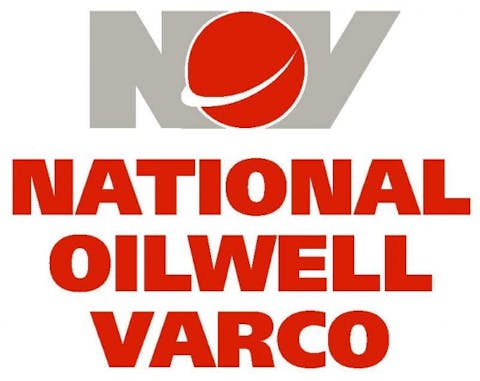In mid-January, equipment manufacturer Robbins & Myers, Inc. (NYSE: RBN) reiterated its intention to merge with National-Oilwell Varco, Inc. (NYSE: NOV) on February 19, 2013. After the merger has been completed, Robbins & Myers will become a wholly-owned subsidiary of the Houston-based oil services company. Since the deal has already been approved by a vote of Robbins & Myers shareholders, it simply awaits clearance from the customary pre-closing antitrust investigation. With no pending legal action, it appears likely that the merger will occur as scheduled on February 19.

Willis, Texas-based Robbins & Myers designs engineering equipment for a variety of uses. Its principal products are used to extract oil and natural gas from conventional, underwater and shale-locked deposits. It also operates a division that builds, upgrades, and repairs energy pipelines and other long-distance liquid transportation systems. Robbins & Myers manufactures small-scale items like bolts and valves as well as large pieces of drilling and extraction equipment. The company also designs and manufactures waste-water treatment tanks for municipal utilities. In 2012, Robbins & Myers earned $146.7 million on gross revenues of about $1 billion.
National Oilwell Varco operates in many of the same sub-fields as its acquisition target. The company designs and implements various energy-extraction systems, including rigs, pipes, derricks, flow control networks, measurement devices, and cranes. It also sells and rents the pumps, drills, and storage devices that it manufactures. National Oilwell Varco is also capable of building and maintaining pipelines and offers inspection and diagnostic services for the energy-extraction firms with which it works. In recent years, the company has diversified into the wind-power sector and now has a significant turbine-manufacturing operation. In 2012, National Oilwell Varco earned $2.5 billion on about $20 billion in gross revenues.
How the Deal Is Structured
The pending merger between these two companies is relatively straightforward. Under its terms, current Robbins & Myer shareholders will receive $60 in cash for each share that they own. This values the company at about $2.5 billion and represents a premium of about 3.5 percent from its current price of $57.80 per share. Relative to Robbins & Myers’s pre-announcement closing price of $46.80 per share, the $60-per-share buyout price represents a premium of about 28 percent. Once the merger has been completed, all outstanding shares of Robbins & Myers will be canceled.
Complications and Legal Issues
Although it is not likely to threaten its completion, this deal’s closing date has been pushed back by a “supplemental information” request from the U.S. Department of Justice. News that this request had been received caused Robbins & Myers’s stock price to dip slightly. Assuming that the deal remains on schedule, this may represent a transient merger opportunity that presents very little downside risk.
While the terms of the information request have not been made public, it appears likely that antitrust investigators are seeking more information about Robbins & Myers’s activities in the drilling services sector. Since the company competes directly with National Oilwell Varco in this space, such a request should not be construed as unusual. Given Robbins & Myers’s relatively small size and the overall competitiveness of the sub-field, it is unlikely that the deal will be scuttled. Any further delays may provide short-term investors with key buying opportunities.
Likely Outcome and Long-Term Prospects
The deal is simply the latest in the current wave of consolidation that has swept the energy-extraction and oilfield-services industries. For its part, National Oilwell Varco is poised to obtain valuable assets, manufacturing processes and employees from one of its smaller competitors. Meanwhile, long-term Robbins & Myers shareholders will receive a solid return on their investment and reduce their exposure to an often-volatile market sector.
After the merger, National Oilwell Varco should be better-equipped to handle the challenges of a changing energy-extraction industry. The rapid development of shale oil and tar-sands deposits on the North American continent bodes well for its existing domestic infrastructure. Likewise, the rapid growth in the continent’s wind-power production capacity should benefit its booming turbine division.
Whereas larger competitors like Houston-based Schlumberger Limited. (NYSE: SLB) and Halliburton Company (NYSE: HAL) have diversified across a wide range of industries, National Oilwell Varco remains focused on energy production. While this opens it up to the threat of a sudden drop in oil prices, its investment in natural gas and wind-power services should insulate it somewhat from such a threat. In addition, it is less exposed to the legal pitfalls of operating in dangerous or politically-charged environments. By contrast, much of Halliburton’s logistical infrastructure exists in unstable parts of the world. Halliburton is in countries like Iraq, Venezuela, and Congo. For its part, Schlumberger has significant deep-sea drilling resources that are subject to costly hangups.
Barring an unforeseen turn of events, it appears likely that the Justice Department’s antitrust review will pass muster. Once this happens, the deal will be given the go-ahead to close on February 19, 2013. Arbitrage investors who wish to take advantage of a temporary price discrepancy in shares of Robbins & Myers would do well to watch the stock at these levels.
The article Merger Not a Simple 3.5% originally appeared on Fool.com and is written by Mike Thiessen.
